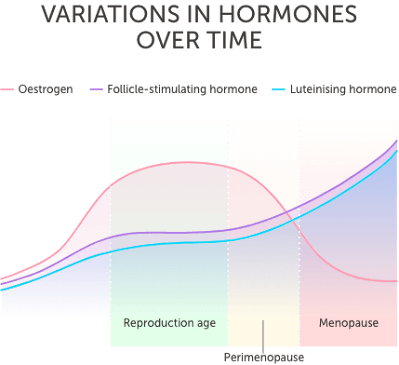Prevention of hormonal changes
For example, at 12, girls may suffer from pubertal gingivitis.
The hormonal changes experienced by women at certain stages of their lives have an extraordinary influence on the appearance of some oral disorders, which, in turn, become health problems, especially during puberty, menstruation, pregnancy, and menopause. In this situation, information and prevention are key.
The health of a woman's gums depends throughout her life on an element we do not control: the hormonal changes she experiences during puberty, pregnancy, and menopause.
Puberty
Around 12, girls may suffer from pubertal gingivitis, with significant inflammation of the gums at the interdental and vestibular levels. It is associated with increased sex hormones, estrogens, and progesterone, which increase blood circulation to the gums, favoring inflammation due to bacteria.
What does this result in? Sometimes bleeding of the gums causes a greater predisposition to have dental caries and develop infectious problems.
This situation is usually transitory and reversible after puberty, at least partially. Still, it is advisable to prevent, diagnose and treat periodontal problems in girls and adolescents early by seeing a dentist.
Pregnancy
Hormonal changes during this period affect the gums' blood vessels, the functioning of the cells of the periodontium (tissue that surrounds and supports the teeth), plaque bacteria, and the local immune system.
If the pregnant woman has pre-pregnancy gingivitis or periodontitis, the risk of having a premature delivery or a low birth weight baby increases. Some studies link periodontal disease to a woman's increased time to become pregnant.
Several studies have shown an increase in gum inflammation during the 9 months of gestation, which usually disappears after delivery. This is known as pregnancy or gravid gingivitis, a pathology characterized by enlarged, intensely red gums that bleed easily, with low amounts of bacterial plaque.
Bleeding gums during pregnancy is abnormal, should not occur, and should be diagnosed and treated correctly. Therefore, periodontal examination before and during pregnancy and treating its pathology is vital.
Menopause
In this period of a woman's life, estrogen, and progesterone levels decrease, i.e., hormonal changes that reduce the inflammatory effect on the gums and reduce bone density, resulting in osteoporosis.
In the mouth, there are significant changes in the tissues, changes in the biochemical composition of saliva, and reduced secretion.
In menopausal women, atrophic gingivitis, shiny and dry gums, easy bleeding, and oral discomfort may appear, with a burning sensation, dryness, and sour taste, known as "burning mouth syndrome."
Special mention should be made of osteoporosis since it can be a risk factor for periodontal disease due to the increased loss of alveolar bone.
Therefore, it is essential to maintain low levels of bacterial plaque: regular dentist visits will help identify and treat any problems that may arise. And in the case of taking oral bisphosphonates (the most frequent treatment to prevent osteoporotic fractures), the specialist should be informed so that he/she can take the appropriate preventive and therapeutic measures.

